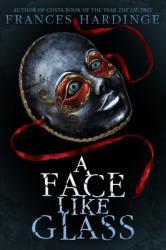
There's something wrong with Neverfell's face. In Caverna, where people live underground, people's facial expressions never change, unless they want them to. But Neverfell's face is horrifying, and so her caretaker Master Grandible, cheesemaker extraordinaire, makes her wear a mask at all times. Confined to Grandible's chambers, Neverfell gloms on to all visitors, until one day she meets a special visitor, escapes Grandible's corridors and truly starts to experience the horrors of Caverna - all of which are more terrible than her face.
First, this is not a horror book. I went into it thinking that it was (I mean, look at that cover - it's creepy!), and I think that expectation hampered my enjoyment of the read a bit.
By all rights, I should have loved this book. It has the ingredients of a book I would love: a strong(ish) female heroine, intricate worldbuilding, court intrigue, unreliable characters and a few fun twists. Unfortunately, I was never able to really connect with the characters, aside from Neverfell. Neverfell, and to a lesser extent her friend Zouelle, are the only characters to really get much development, and unfortunately, Neverfell spent most of the book annoying me. The first part of the book is also short on an overarching plot - I kept wondering where we were going (aside from, potentially, outside). Neverfell spends the middle 200 pages or so making silly, avoidable mistakes and almost getting herself or her friends killed. Which makes sense, given her sheltered upbringing, but it wasn't super fun to read, and despite a strong beginning, the middle of the book seemed to drag on. However, the last 100 pages or so, once our protagonist has a larger objective, were delightful. There's a reveal in the epilogue that I didn't see coming, and I loved it.
While the book wasn't perfect, the worldbuilding was amazing, and I definitely want to read author's other book, The Lie Tree (which apparently is horror), now. A very solid middle grade read. 3 stars - I liked it.

There's something wrong with Neverfell's face. In Caverna, where people live underground, people's facial expressions never change, unless they want them to. But Neverfell's face is horrifying, and so her caretaker Master Grandible, cheesemaker extraordinaire, makes her wear a mask at all times. Confined to Grandible's chambers, Neverfell gloms on to all visitors, until one day she meets a special visitor, escapes Grandible's corridors and truly starts to experience the horrors of Caverna - all of which are more terrible than her face.
First, this is not a horror book. I went into it thinking that it was (I mean, look at that cover - it's creepy!), and I think that expectation hampered my enjoyment of the read a bit.
By all rights, I should have loved this book. It has the ingredients of a book I would love: a strong(ish) female heroine, intricate worldbuilding, court intrigue, unreliable characters and a few fun twists. Unfortunately, I was never able to really connect with the characters, aside from Neverfell. Neverfell, and to a lesser extent her friend Zouelle, are the only characters to really get much development, and unfortunately, Neverfell spent most of the book annoying me. The first part of the book is also short on an overarching plot - I kept wondering where we were going (aside from, potentially, outside). Neverfell spends the middle 200 pages or so making silly, avoidable mistakes and almost getting herself or her friends killed. Which makes sense, given her sheltered upbringing, but it wasn't super fun to read, and despite a strong beginning, the middle of the book seemed to drag on. However, the last 100 pages or so, once our protagonist has a larger objective, were delightful. There's a reveal in the epilogue that I didn't see coming, and I loved it.
While the book wasn't perfect, the worldbuilding was amazing, and I definitely want to read author's other book, The Lie Tree (which apparently is horror), now. A very solid middle grade read. 3 stars - I liked it.
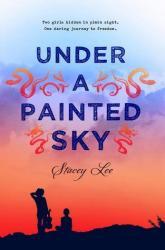
I really enjoyed this book because it was such an adventurous and suspenseful story: just my type. The main character in this story goes through so much I know I could never endure myself, but she kept pushing through it all and made it out all right. There were so many surprising things in this amazing book that happened that I never would have guessed.
Under A Painted Sky was probably the best book I've read this year. Like all books, it had a little blunder here and there, but overall I absolutely loved it.
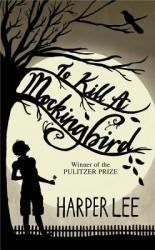
Although it was a little hard for me to get into this book, once I did I was hooked. This book is about Scout, a 7 year old girl who is dealing with the hardship of her father having to defend a black man of rape in the 1940's. Along the way, Scout and her brother Jem meet Dill and they spend their summers together. Dill wants to get Boo Radley to come out of his house, and in the end, he does. With this book is the message to put yourself into others shoes to see how they feel. A classic book, great for anyone.

Although it was a little hard for me to get into this book, once I did I was hooked. This book is about Scout, a 7 year old girl who is dealing with the hardship of her father having to defend a black man of rape in the 1940's. Along the way, Scout and her brother Jem meet Dill and they spend their summers together. Dill wants to get Boo Radley to come out of his house, and in the end, he does. With this book is the message to put yourself into others shoes to see how they feel. A classic book, great for anyone.

Although it was a little hard for me to get into this book, once I did I was hooked. This book is about Scout, a 7 year old girl who is dealing with the hardship of her father having to defend a black man of rape in the 1940's. Along the way, Scout and her brother Jem meet Dill and they spend their summers together. Dill wants to get Boo Radley to come out of his house, and in the end, he does. With this book is the message to put yourself into others shoes to see how they feel. A classic book, great for anyone.
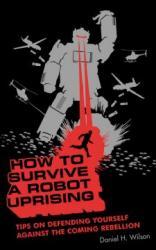
As a precursor to Robopocalypse , How to Survive a Robot Uprising: Tips on Defending Yourself Against the Coming Rebellion takes a humorous approach to educating the reader about the capabilities and limitations of today’s robots. Similar in style to Where's My Jetpack?: A Guide to the Amazing Science Fiction Future That Never Arrived , How to Survive a Robot Uprising uses the humor of preparing for the end of the world to poke fun at the limited possibility that we’d eventually be destroyed by the robots we use to make our lives comfortable today.
With my background in robotics (my Master’s Degree was in Mechanical Engineering with a focus on Robotics and Design), I quickly realized how Daniel H. Wilson was writing this “guide.” Robots are powerful and useful machines, many of which can perform actions much more efficiently and accurately than humans can, thus leading to our swift and inexorable demise.
However, by the same token, they also have limitations and challenges that we humans do not (or at least don’t consciously think about). These robotic challenges are primarily used “against” them in this hypothetical scenario, revealing that most robots aren’t as indestructible as we make them out to be in fiction.
My only qualms with this book were that it was too short (I love this tongue-in-cheek writing style) and that the structure seemed kind of “loose.” Sure, different sections went over such topics as types of robots, and what ways these robots could be incapacitated, but the flow felt a bit like “stream of consciousness” writing. Granted, many of the topics cross over into each other, so it can be difficult to box them into discrete and distinct sections. Still, the narrative seems to jump all over the place as a result. Perhaps this is why Wilson decided to eventually write Robopocalypse, to add the structure that was missing from this “pamphlet.”
A funny book that subtly educates the reader about robot strengths and weaknesses, I give How to Survive a Robot Uprising 4.0 stars out of 5.
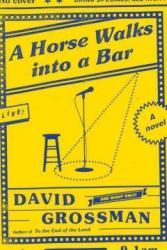
Somewhere along the line, I saw that this book won the Man Booker International Prize this year and put it on my “to read” list on Overdrive. I wasn’t quite sure what to expect, other than perhaps a little bit of comedy, considering the title is a basic setup for a joke’s punchline. In that sense, the book delivered on that premise by being about a stand-up comedian in a nightclub giving his routine to the audience. I did not expect, however, the deeper subtext about the character and his relation to the narrator. It’s in this subtext where we find the meat of this story.
It has often been said that “Sometimes all you can do is laugh to keep yourself from crying.” A Horse Walks into a Bar epitomizes this statement by blending serious subjects like cancer, death, and the Holocaust with a smattering of jokes, physical comedy, and anecdotal monologues. It’s in this contrast where we find how uncomfortable society is when dealing with the difficult subjects of life. I know I usually use comedy to cope with challenging situations, often in an inappropriate accommodation to the dour mood. In the end, we’d rather not address these facts of life because they don’t bring any joy into the world.
Partly due to a lack of explanation, as well as a somewhat jolting and meandering storytelling method, the plot of this book felt a little light, if not downright confusing. I’m sure if I had paid more attention to the words spoken by the ill comedian (who himself was kind of weird) I would have pulled more out of it and understood it better. Unfortunately, my mind always clings to the jokes, of which there a few good ones, and tends to ignore anything else that might be significant.
A bit uncomfortable, but poignant nonetheless, I give A Horse Walks into a Bar 3.5 stars out of 5.

Somewhere along the line, I saw that this book won the Man Booker International Prize this year and put it on my “to read” list on Overdrive. I wasn’t quite sure what to expect, other than perhaps a little bit of comedy, considering the title is a basic setup for a joke’s punchline. In that sense, the book delivered on that premise by being about a stand-up comedian in a nightclub giving his routine to the audience. I did not expect, however, the deeper subtext about the character and his relation to the narrator. It’s in this subtext where we find the meat of this story.
It has often been said that “Sometimes all you can do is laugh to keep yourself from crying.” A Horse Walks into a Bar epitomizes this statement by blending serious subjects like cancer, death, and the Holocaust with a smattering of jokes, physical comedy, and anecdotal monologues. It’s in this contrast where we find how uncomfortable society is when dealing with the difficult subjects of life. I know I usually use comedy to cope with challenging situations, often in an inappropriate accommodation to the dour mood. In the end, we’d rather not address these facts of life because they don’t bring any joy into the world.
Partly due to a lack of explanation, as well as a somewhat jolting and meandering storytelling method, the plot of this book felt a little light, if not downright confusing. I’m sure if I had paid more attention to the words spoken by the ill comedian (who himself was kind of weird) I would have pulled more out of it and understood it better. Unfortunately, my mind always clings to the jokes, of which there a few good ones, and tends to ignore anything else that might be significant.
A bit uncomfortable, but poignant nonetheless, I give A Horse Walks into a Bar 3.5 stars out of 5.
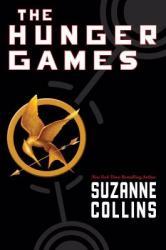
Ever since the release of Suzanne Collin's dystopian novel "The Hunger Games", her work has garnered international acclaim from some of the world's most reputable critics. Adopted into a series of wildly popular films and having been printed more than 23 million times, the staggering success of her novel begs the question, "Does The Hunger Games truly live up to its notoriety?" Well in fact, after having read it multiple times, I can personally say that it far exceeded my expectations.
After the ruin of North America and the collapse of democracy, an authoritarian government arises. In order to maintain oversight of its people, the capitol divides its dominions into twelve districts, each specializing in a different pursuit. Every year, the capitol hosts "The Hunger Games", in which a boy and girl from each district are randomly pooled into a survival competition. Participants must fight to the death in a futuristic arena, all the while being broadcasted live on TV.
Enter Katniss Everdeen, a 16-year-old teenager from the impoverish District 12. In an effort to protect her sister, she volunteers as a tribute to the game, but as she heads to the capital, she realizes that her life will never be the same. Through the course of the story, Katniss struggles to balance her conflicting emotions, and comes to understand the harsh reality of life in Panem.
As Katniss makes these revelations, the reader has the chance to pick up on a number of powerful themes, examples of which include the dangers of reality shows, the ever-growing obsession with fashion trends, and the consequences of desensitization to violence. Not only is this novel an action-packed and engaging read, but it also leads readers to share meaningful conversations about changing ideologies in the 21st century.
I picked up this read after watching the book-inspired film, and have been pleasantly surprised with it. While the movie makes fair and accurate adaptions to the story, it misses out on many of the themes presented in the books. For this reason, I would certainty recommend continuing on to read the novel after watching the movie, as there is plenty of unique content from the book. If you have not watched the movie, I would advise even stronger to pick up this read. For the reasons previously mentioned and more, I honestly am so glad to have read this book.
One complaint I might bring up is that while a large majority of book readers are young, the novel has some extremely gruesome scenes. If you are to read this book, be forewarned of violence. Furthermore, I found some passages difficult to read, due to the choppy-sentence structure used by Collins. This may just be a personal preference, but I felt that it was of detriment to the story.
Overall, "The Hunger Games" will certainty appeal to teens 13 and up and leave readers with discussion points about government, free-speech, sacrifice, moral desensitization, and other thought-provoking themes. It mixes an enthralling plot with rich and powerful messages- a formula bound for literary success.
Reviewer Grade 10

Ever since the release of Suzanne Collin's dystopian novel "The Hunger Games", her work has garnered international acclaim from some of the world's most reputable critics. Adopted into a series of wildly popular films and having been printed more than 23 million times, the staggering success of her novel begs the question, "Does The Hunger Games truly live up to its notoriety?" Well in fact, after having read it multiple times, I can personally say that it far exceeded my expectations.
After the ruin of North America and the collapse of democracy, an authoritarian government arises. In order to maintain oversight of its people, the capitol divides its dominions into twelve districts, each specializing in a different pursuit. Every year, the capitol hosts "The Hunger Games", in which a boy and girl from each district are randomly pooled into a survival competition. Participants must fight to the death in a futuristic arena, all the while being broadcasted live on TV.
Enter Katniss Everdeen, a 16-year-old teenager from the impoverish District 12. In an effort to protect her sister, she volunteers as a tribute to the game, but as she heads to the capital, she realizes that her life will never be the same. Through the course of the story, Katniss struggles to balance her conflicting emotions, and comes to understand the harsh reality of life in Panem.
As Katniss makes these revelations, the reader has the chance to pick up on a number of powerful themes, examples of which include the dangers of reality shows, the ever-growing obsession with fashion trends, and the consequences of desensitization to violence. Not only is this novel an action-packed and engaging read, but it also leads readers to share meaningful conversations about changing ideologies in the 21st century.
I picked up this read after watching the book-inspired film, and have been pleasantly surprised with it. While the movie makes fair and accurate adaptions to the story, it misses out on many of the themes presented in the books. For this reason, I would certainty recommend continuing on to read the novel after watching the movie, as there is plenty of unique content from the book. If you have not watched the movie, I would advise even stronger to pick up this read. For the reasons previously mentioned and more, I honestly am so glad to have read this book.
One complaint I might bring up is that while a large majority of book readers are young, the novel has some extremely gruesome scenes. If you are to read this book, be forewarned of violence. Furthermore, I found some passages difficult to read, due to the choppy-sentence structure used by Collins. This may just be a personal preference, but I felt that it was of detriment to the story.
Overall, "The Hunger Games" will certainty appeal to teens 13 and up and leave readers with discussion points about government, free-speech, sacrifice, moral desensitization, and other thought-provoking themes. It mixes an enthralling plot with rich and powerful messages- a formula bound for literary success.
Reviewer Grade 10
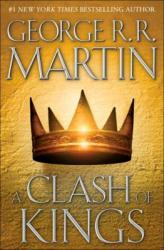
"A Clash of Kings", the second installment in George R.R. Martins "A Song of Ice and Fire" book trilogy, picks up where the first novel, "A Game of Thrones" left off. With the death of the King, Robert Baratheon, and his hand, Eddard "Ned" Stark, war rages throughout the realm, with a total of 5 lords declaring themselves for the throne. Robert's brothers, along with their allied houses, raise their banners in outlaw to the crown, while young King Joffrey defends his claim to the Iron Throne.
Meanwhile, Eddard's eldest son, Rob, rallies the North to secede from the Seven Kingdoms in declaration of their own "King in the North". This, of course, reaps certain consequences in a system built on partitions of trust and loyalty. In the midst of this turmoil, yet another lord, Balon Grejoy, who holds the Iron Islands, joins the fight, and in a distant fog from across the Narrow Sea, lies Daenerys Targaryen. She formulates an Army of Unsullied warriors and manages to acquire 3 dragons, restoring honor to her house and strengthening her claim to the throne.
With time, the war unfolds, and as it does, so do an onslaught of secrets, lies, and betrayals unforseen to even some of the most observant readers.
Martin continues to draw inspiration from English history, while also divulging from reality with the continuation of the white walker plot line.
I moved onto this book from "A Game of Thrones", and can genuinely say that I think it was a major improvement from its predecessor. Although the plot may still move a bit slow for some, now that George R.R. Martin has set the stage with background information, there is much more action than in the previous installment of the series.
One personal complaint of mine is that the sheer magnitude of characters, lore, and history presented in the book can get a bit confusing at time.
Especially for someone who is trying one of their first fantasy novels, this book may not be the best fit. On the contrary, however, if you're looking for a longer, and more austere, read, I would certainly continue onto this book from the last. The plot only gets better with time, and I think you'll be pleasantly surprised. If you decide not to keep reading A Song and Ice and Fire, though, I would recommend trying any one of J.R.R Tolkien's fantasy books. From my opinion, they are similar in style, but different enough to cater to one another's faults.
Grade 10

"A Clash of Kings", the second installment in George R.R. Martins "A Song of Ice and Fire" book trilogy, picks up where the first novel, "A Game of Thrones" left off. With the death of the King, Robert Baratheon, and his hand, Eddard "Ned" Stark, war rages throughout the realm, with a total of 5 lords declaring themselves for the throne. Robert's brothers, along with their allied houses, raise their banners in outlaw to the crown, while young King Joffrey defends his claim to the Iron Throne.
Meanwhile, Eddard's eldest son, Rob, rallies the North to secede from the Seven Kingdoms in declaration of their own "King in the North". This, of course, reaps certain consequences in a system built on partitions of trust and loyalty. In the midst of this turmoil, yet another lord, Balon Grejoy, who holds the Iron Islands, joins the fight, and in a distant fog from across the Narrow Sea, lies Daenerys Targaryen. She formulates an Army of Unsullied warriors and manages to acquire 3 dragons, restoring honor to her house and strengthening her claim to the throne.
With time, the war unfolds, and as it does, so do an onslaught of secrets, lies, and betrayals unforseen to even some of the most observant readers.
Martin continues to draw inspiration from English history, while also divulging from reality with the continuation of the white walker plot line.
I moved onto this book from "A Game of Thrones", and can genuinely say that I think it was a major improvement from its predecessor. Although the plot may still move a bit slow for some, now that George R.R. Martin has set the stage with background information, there is much more action than in the previous installment of the series.
One personal complaint of mine is that the sheer magnitude of characters, lore, and history presented in the book can get a bit confusing at time.
Especially for someone who is trying one of their first fantasy novels, this book may not be the best fit. On the contrary, however, if you're looking for a longer, and more austere, read, I would certainly continue onto this book from the last. The plot only gets better with time, and I think you'll be pleasantly surprised. If you decide not to keep reading A Song and Ice and Fire, though, I would recommend trying any one of J.R.R Tolkien's fantasy books. From my opinion, they are similar in style, but different enough to cater to one another's faults.
Grade 10
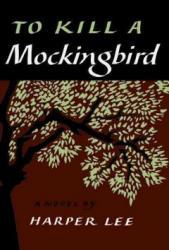
The novel “To Kill a Mockingbird,” by Harper Lee may strike your perception as a seemingly uninteresting story. The book tells the tale of two young children in a sleepy Alabama town, and at face-value, the plot does not garner much intrigue. However, I was in the same situation when I was required to read this book in the spring of my freshman year at high school.
Indeed, while at first the story seemed boring, as I continued to carry on with reading, every turn of the page immersed me ever further into Lee’s timeless story.
As a reader, you share the emotions felt by Jem and Scout, two young siblings, as they learn the nuances of life in the prejudiced American South during the early 1900s. Not only was their community weakened by the economic collapse of the Great Depression, but also sickened by the bitter contempt felt among whites and blacks.
In the beginning of the novel, Jean Louise “Scout” Finch and her brother Jem innocently play games with their friend “Dill” and enjoy life in Maycomb with their father, Atticus. During this time, they have little to no apprehension of the racial tension hanging in their society, but when their father, Atticus Finch, who works as lawyer, openly chooses to defend an African American in court, trouble arises.
Jem and Scout undergo a number of personal developments during the course of the novel. While at first, they carry with them a genuine and child-like innocence, the court trial their father has taken on exposes them to the racist indignity felt by their fellow community members. Jem and Scout struggle to balance their conflict between the social norms of Maycomb and the morals their father has instilled in them. With the trial’s end, Jem and Scout are lead to discover the imperfections of their society, and the ways with which they are forced to deal with them. As the reader follows along, they not only watch Jem and Scout change, but they too themselves are shaped through Lee’s captivating story.
Overall, I enjoyed most aspects of the book. Although some scenes I felt were a bit plain and unprogressive, these minor flaws were overshadowed by the powerful themes Lee expresses through the story. If you haven’t already read To Kill a Mockingbird, I would certainly give the novel a try. If not for the genuine enjoyment of reading the story, try this novel to feel the powerful emotions stirred from Lee’s literary masterpiece.
Reviewer Grade: 10

The novel “To Kill a Mockingbird,” by Harper Lee may strike your perception as a seemingly uninteresting story. The book tells the tale of two young children in a sleepy Alabama town, and at face-value, the plot does not garner much intrigue. However, I was in the same situation when I was required to read this book in the spring of my freshman year at high school.
Indeed, while at first the story seemed boring, as I continued to carry on with reading, every turn of the page immersed me ever further into Lee’s timeless story.
As a reader, you share the emotions felt by Jem and Scout, two young siblings, as they learn the nuances of life in the prejudiced American South during the early 1900s. Not only was their community weakened by the economic collapse of the Great Depression, but also sickened by the bitter contempt felt among whites and blacks.
In the beginning of the novel, Jean Louise “Scout” Finch and her brother Jem innocently play games with their friend “Dill” and enjoy life in Maycomb with their father, Atticus. During this time, they have little to no apprehension of the racial tension hanging in their society, but when their father, Atticus Finch, who works as lawyer, openly chooses to defend an African American in court, trouble arises.
Jem and Scout undergo a number of personal developments during the course of the novel. While at first, they carry with them a genuine and child-like innocence, the court trial their father has taken on exposes them to the racist indignity felt by their fellow community members. Jem and Scout struggle to balance their conflict between the social norms of Maycomb and the morals their father has instilled in them. With the trial’s end, Jem and Scout are lead to discover the imperfections of their society, and the ways with which they are forced to deal with them. As the reader follows along, they not only watch Jem and Scout change, but they too themselves are shaped through Lee’s captivating story.
Overall, I enjoyed most aspects of the book. Although some scenes I felt were a bit plain and unprogressive, these minor flaws were overshadowed by the powerful themes Lee expresses through the story. If you haven’t already read To Kill a Mockingbird, I would certainly give the novel a try. If not for the genuine enjoyment of reading the story, try this novel to feel the powerful emotions stirred from Lee’s literary masterpiece.
Reviewer Grade: 10

The novel “To Kill a Mockingbird,” by Harper Lee may strike your perception as a seemingly uninteresting story. The book tells the tale of two young children in a sleepy Alabama town, and at face-value, the plot does not garner much intrigue. However, I was in the same situation when I was required to read this book in the spring of my freshman year at high school.
Indeed, while at first the story seemed boring, as I continued to carry on with reading, every turn of the page immersed me ever further into Lee’s timeless story.
As a reader, you share the emotions felt by Jem and Scout, two young siblings, as they learn the nuances of life in the prejudiced American South during the early 1900s. Not only was their community weakened by the economic collapse of the Great Depression, but also sickened by the bitter contempt felt among whites and blacks.
In the beginning of the novel, Jean Louise “Scout” Finch and her brother Jem innocently play games with their friend “Dill” and enjoy life in Maycomb with their father, Atticus. During this time, they have little to no apprehension of the racial tension hanging in their society, but when their father, Atticus Finch, who works as lawyer, openly chooses to defend an African American in court, trouble arises.
Jem and Scout undergo a number of personal developments during the course of the novel. While at first, they carry with them a genuine and child-like innocence, the court trial their father has taken on exposes them to the racist indignity felt by their fellow community members. Jem and Scout struggle to balance their conflict between the social norms of Maycomb and the morals their father has instilled in them. With the trial’s end, Jem and Scout are lead to discover the imperfections of their society, and the ways with which they are forced to deal with them. As the reader follows along, they not only watch Jem and Scout change, but they too themselves are shaped through Lee’s captivating story.
Overall, I enjoyed most aspects of the book. Although some scenes I felt were a bit plain and unprogressive, these minor flaws were overshadowed by the powerful themes Lee expresses through the story. If you haven’t already read To Kill a Mockingbird, I would certainly give the novel a try. If not for the genuine enjoyment of reading the story, try this novel to feel the powerful emotions stirred from Lee’s literary masterpiece.
Reviewer Grade: 10
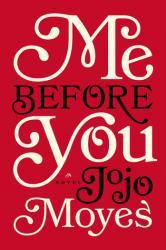
This was a good book. I found it engaging but not so good that I couldn't put it down. Actually, towards the end I found myself carving out time to read it. It's a romance with a twist. I'd like to see the movie. I'm going to read the second in the series, After You next, so that's saying something.
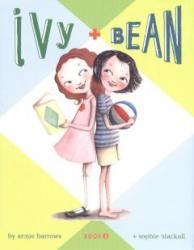
The moment the best friends saw each other Bean and Ivy knew they would never be friends but when Ivy finally came to Bean's house, they become friends. I liked this book because it teaches us how to become friends.

The moment the best friends saw each other Bean and Ivy knew they would never be friends but when Ivy finally came to Bean's house, they become friends. I liked this book because it teaches us how to become friends.
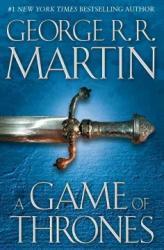
“A Game of Thrones” by George R.R. Martin tells the tale of various clashing households and their quest to conquer control over the seven kingdoms. Set in a distant, but vaguely familiar medieval-Europe, the story bears parallels to England’s “War of the Roses,” while also introducing its share of unique fantasy elements. As the reader progresses through the book, they follow the politics of the Iron Throne- a metaphor representing the complete and utter control a King possesses in a feudal government system. Furthermore, the reader tracks 8 character perspectives, which are alternated through passing chapters.
As the King rides north to Winterfell to meet with his trusted vassal, and friend, Eddard "Ned" Stark, he strikes up an agreement to anoint Eddard as the hand of the king. Reluctant, Ned follows the King back to the South, but as the plot continues to unfold, Eddard learns of a secret unbeknownst to the King and some of his most trusted advisers. With the death of the King and the ruin of Eddard’s house, war rages in Westeros- as several characters attempt to strike their claims on the Iron Throne.
I initially picked this book up after finishing J.R.R Tolkien’s, “Lord of the Rings” series and have been pleasantly surprised with it. Many fantasy readers have speculated that the literary masterpiece of Tolkien’s novels could not be out done, but I am now inclined to disagree. I thought the book was well-crafted and engaging as an intermediate to advanced reader. However, I would file the complaint that the book moves a bit slow for my taste. Some may lose interest in its plot, especially considering the sheer volume of the book series. The old-language also adds to this effect, as it may cause some readers to struggle following along.
Overall, I would say that this book is certainly worth a try for someone who enjoys medieval-fantasy novels. Admittedly, it will take a while to read and is certainly no small undertaking, but by sticking with it, I found myself enjoying every page more than the last!
Grade 10


